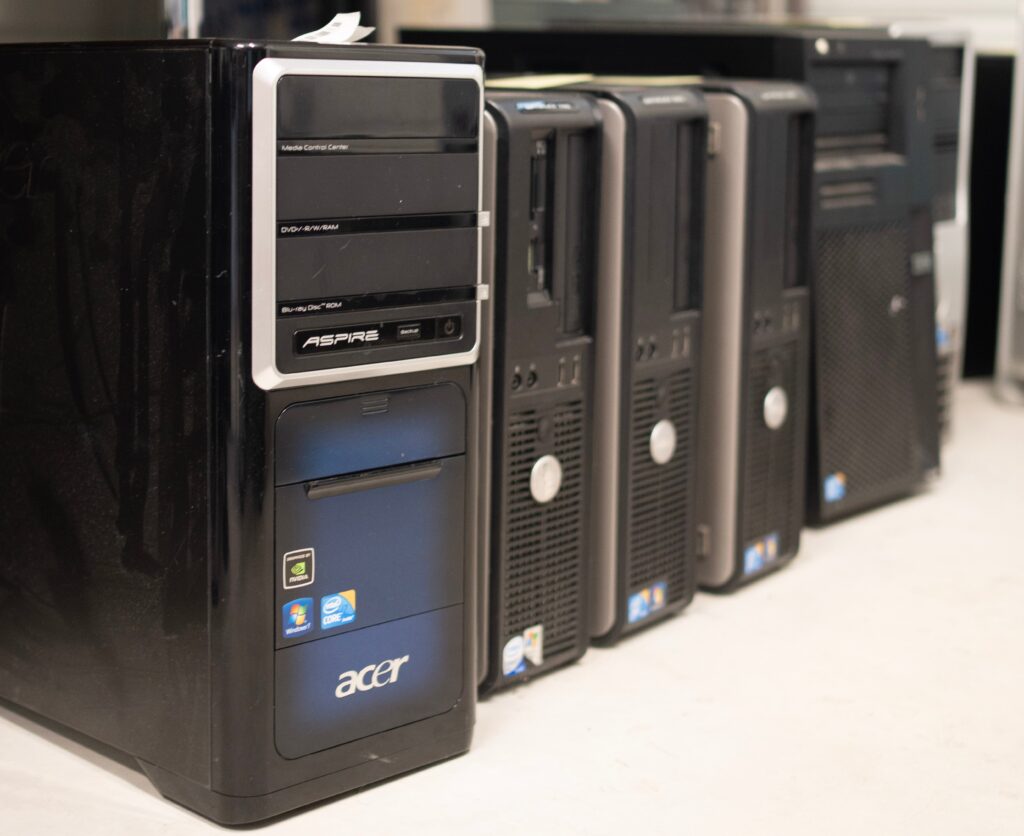Whether you’re a business owner storing confidential client data or an individual concerned about your personal information, it’s important to understand how to properly dispose of a hard drive to protect against unwanted data breaches.
Knowing how to safely and securely eliminate old hardware can help you avoid the risks associated with improper disposal.
In this blog post, we’ll discuss the proper way to destroy a hard drive and some of the threats associated with improper elimination techniques.
Have a hard drive that needs to be destroyed? Contact Patriot Shredding to request hard drive shredding services today.
Why Is It Important To Destroy My Old or Unwanted Hard Drive?

Improper hard drive disposal can have serious consequences on your data security, including identity theft and other security concerns. Even if you believe all the data on your hard drive has been removed, cybercriminals can still find ways to recover sensitive information that could place you at unnecessary risk.
Old computer hard drives aren’t the only materials that require professional shredding techniques to destroy. Other devices — such as retired servers, unused flash drives, external hard drives, and outdated mobile devices — may also store sensitive information that should be thoroughly destroyed to prevent security risks.
As a general rule, any hardware that has stored sensitive data should be professionally destroyed by an experienced shredding company.
Risks of DIY Hardware Destruction
Common DIY Methods To Avoid
Many businesses and individuals turn to DIY destruction methods to eliminate unwanted hardware; however, these methods often are insufficient for securely destroying sensitive information.
Such techniques include:
- Wiping: Wiping a hard drive simply means erasing the data contained within it by using a type of software solution. While this might seem impactful, skilled hackers can still retrieve whatever data was wiped.
- Degaussing: This technique involves using a strong magnetic field to eliminate unwanted data. While it may be effective for older hard drives, modern devices are often impervious to such destruction methods.
- Reformatting: One may believe that erasing and reconfiguring a file system is sufficient to destroy an old hard drive, but they’d be mistaken. Like wiping, this technique doesn’t guarantee total destruction.
- Magnetic wiping: An old DIY hardware destruction method, using a large magnet to wipe your hard drive won’t work either. This technique is unreliable and insecure, especially for modern equipment.
The Best Way To Destroy a Hard Drive
The best way to ensure complete destruction of your hard drive and all the data contained within is through professional shredding services.
These solutions use specialized equipment — such as hard drive shredders — to physically eliminate hardware beyond recovery, ensuring complete security for your data. By trusting a professional to destroy your hard drive, you can keep your information protected from savvy cybercriminals.
Destroy Your Hard Drive Safely & Securely With Patriot Shredding
Keeping your sensitive information safe is of paramount importance, which is why it’s best to trust the experts at Patriot Shredding with your hard drive destruction needs.
At Patriot Shredding, we provide comprehensive hard drive shredding solutions that businesses and individuals in Rockville, MD, and surrounding areas can trust to keep their data private even after their hardware becomes unwanted or unnecessary.
Using state-of-the-art equipment and proven techniques, we ensure complete data security and safety with our professional hard drive shredding solutions.
Request hard drive shredding for your sensitive information today by calling Patriot Shredding at 240-206-6030.
GET A QUOTE WITHIN MINUTES
By completing the following information, our team has all the details needed to provide accurate, affordable service options within minutes. For immediate assistance, call (240) 206-6030.

